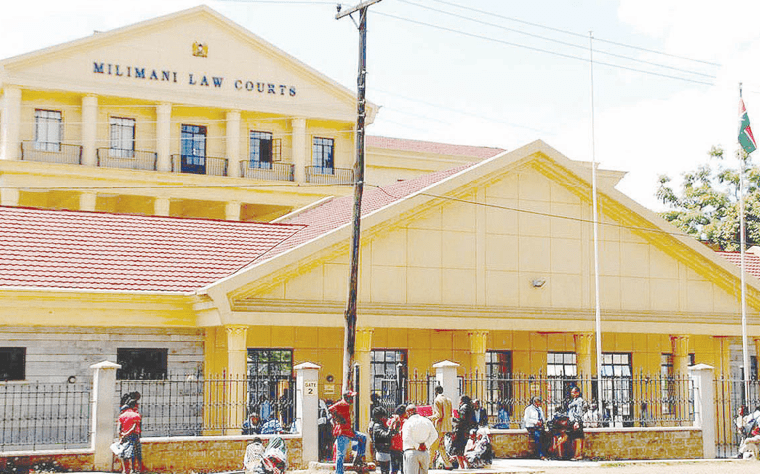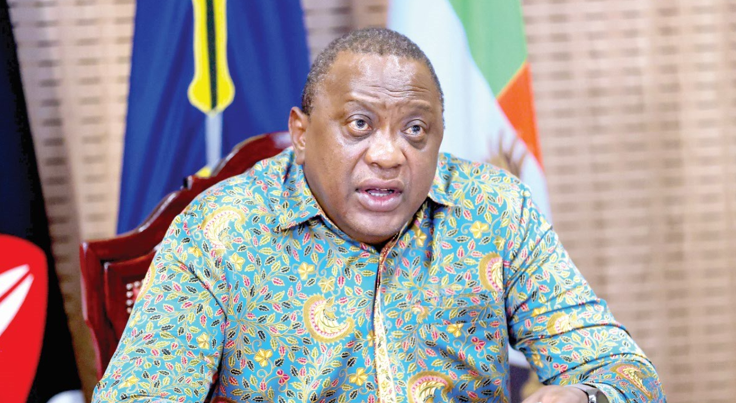Relief for MPs as court gives lifeline to 23 quashed laws

Bernice Mbugua @BerniceMuhindi
The Court of Appeal yesterday retained the nullification of 23 controversial laws passed by the National Assembly without the involvement of the Senate until November when a case on the matter will be determined.
Lady Justices Agnes Murgor, Jessie Lessit and Pauline Nyamweya said they would rule on the matter on November 5.
“Status quo to be maintained pending delivery of the Judgment and what we mean is that the impugned Acts in paragraph 140 (7 and 8) of the Judgment of the High Court to continue to operate until our Judgment is delivered,” ruled Justice Murgor.
A three-judge Bench of the High Court last year nullified the 23 laws saying the National Assembly must be in concurrence with the Senate in considering whether a Bill concerns counties.
The judges had, however, suspended the effect of this ruling for nine months, to allow the National Assembly to regularise the Acts. The period, which was to lapse tomorrow, has been extended to November.
Joint purview
Justices Jairus Ngaah, Anthony Ndung’u and Teresia Matheka had ruled that one Speaker cannot unilaterally make a decision as to whether a Bill does or does not concern counties.
Yesterday, the National Assembly, through lawyers Paul Muite and Issa Mansour, put up a spirited fight to defend the House.
The two lawyers argued that most of the Bills that were suspended by the court were money and appropriation Bills, which are supposed to be exclusively passed by the National Assembly.
“Among the Bills that have been declared unconstitutional and which stand to become nullities are money bills and appropriation bills.
The Constitution itself in Article 114 makes clear it is the exclusive mandate of the National Assembly,” argued Muite.
The Attorney General, through State Counsel Emmanuel Bitta, argued that the High Court had erred in subjecting all Bills, including money Bills, to both Houses.
Bitta argued that if all bills were to be subjected the procedure presented by the High Court, it would present significant challenges to the legislature.
“With superior court declining to consider each and every of impugned pieces of legislation and pronouncing itself on why it considered those pieces of legislation as matters that would fall under joint purview of both houses, the court erred and failed to discharge its judicial obligation,” said Bitta.
In response, the Senate, through lawyers James Orengo, Okong’o Omogeni and Mutula Kilonzo Jnr opposed the appeal arguing that each organ of the State is required to comply with the Constitution.
“The question of separation of powers does not arise on the basis that there was an intrusion by the court on the legislative authority of the National Assembly.
The question the court was dealing with was non-compliance by the National Assembly of a requirement under legislative part that is set out in the Constitution which they did not comply with,” Orengo said.
Orengo, who is the Siaya senator, argued that the legislative part was clearly set out in the Constitution and if any Bill finds itself in the National Assembly, before going into its content, both Speakers were required to make a concurrence and determine jointly whether the Bill concerns the counties.
The impugned Acts are the Public Trustee Amendment Act No 6 of 2018, the Building Surveyors Act of 2018, the Statute law miscellaneous Amendment Act 2018, the Kenya Coast Guard service Act 2018, the Tax Laws Amendment Act 2018, the Statute Law Miscellaneous Act 2018, the Equalisation Fund Appropriation Act 2018 and the Sacco Society Amendment Act no 16 of 2018.
Others are the Appropriations Act, No. 7 of 2018, the Capital Markets (Amendments) Act, No. 15 of 2018, the National Youth Service Act No. 17 of 2018, the Supplementary Appropriations Act, No. 13 of 2018, the Health Laws (Amendment)Act, No. of 5 of 2019, the Sports (Amendment) Act, No. 7 of 2019, the National Government Constituency Development Fund Act, 2015, the National Cohesion and Integration (Amendment) Act, 2019, the Statute law (Miscellaneous Amendment) Act, 2019, the Supplementary Appropriation Act, No. 9 of 2019, the Appropriations Act, 2019 and the Insurance (Amendment) Act, 2019.















